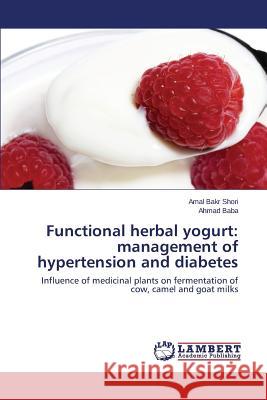Functional herbal yogurt: management of hypertension and diabetes » książka
Functional herbal yogurt: management of hypertension and diabetes
ISBN-13: 9783659510830 / Angielski / Miękka / 2014 / 384 str.
A profound understanding in the relationship between food and health is integral in the development of the concept of functional foods. Fermented dairy products play a functional role either directly through interaction with consumed microorganisms (probiotic effect) or indirectly as a result of action of microbial metabolites. Yogurt is fermented milk and it contains milk nutritious properties, healthy bacteria and fermentation products with anti-diabetic and anti-hypertensive properties. Medicinal plants rich in natural antioxidants and phenolics are increasingly used in food manufacturing because they provide valuable nutritional and therapeutic properties and retard oxidative degradation of lipids. The present study investigates the influence of medicinal plants on fermentation of cow, camel and goat milks and their effects on the physicochemical, biochemical, microbiological and functional properties of probiotic yogurt.
A profound understanding in the relationship between food and health is integral in the development of the concept of functional foods. Fermented dairy products play a functional role either directly through interaction with consumed microorganisms (probiotic effect) or indirectly as a result of action of microbial metabolites. Yogurt is fermented milk and it contains milk nutritious properties, healthy bacteria and fermentation products with anti-diabetic and anti-hypertensive properties. Medicinal plants rich in natural antioxidants and phenolics are increasingly used in food manufacturing because they provide valuable nutritional and therapeutic properties and retard oxidative degradation of lipids. The present study investigates the influence of medicinal plants on fermentation of cow, camel and goat milks and their effects on the physicochemical, biochemical, microbiological and functional properties of probiotic yogurt.











